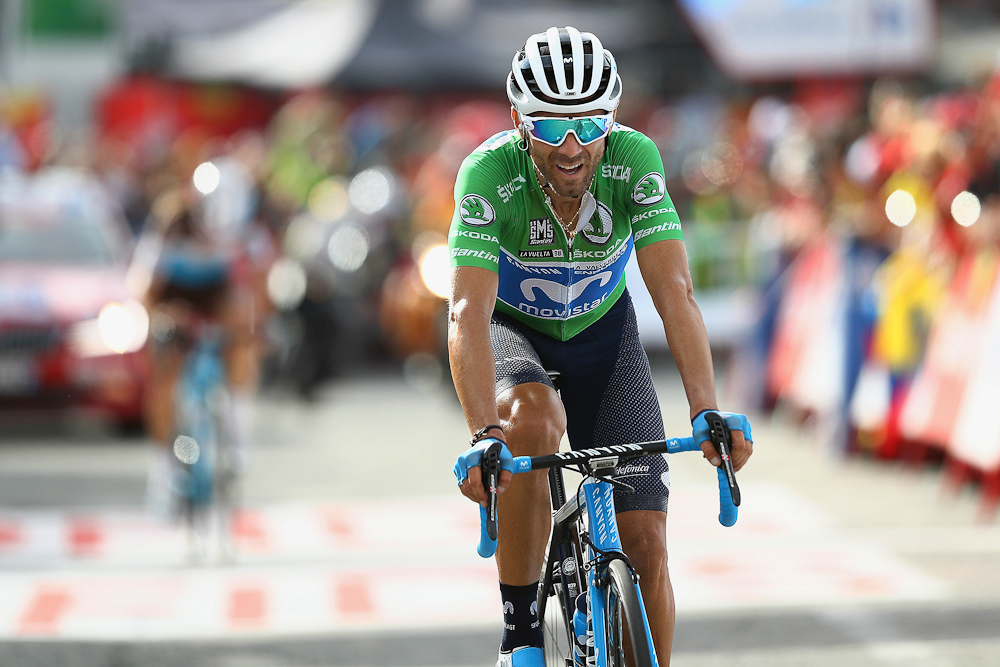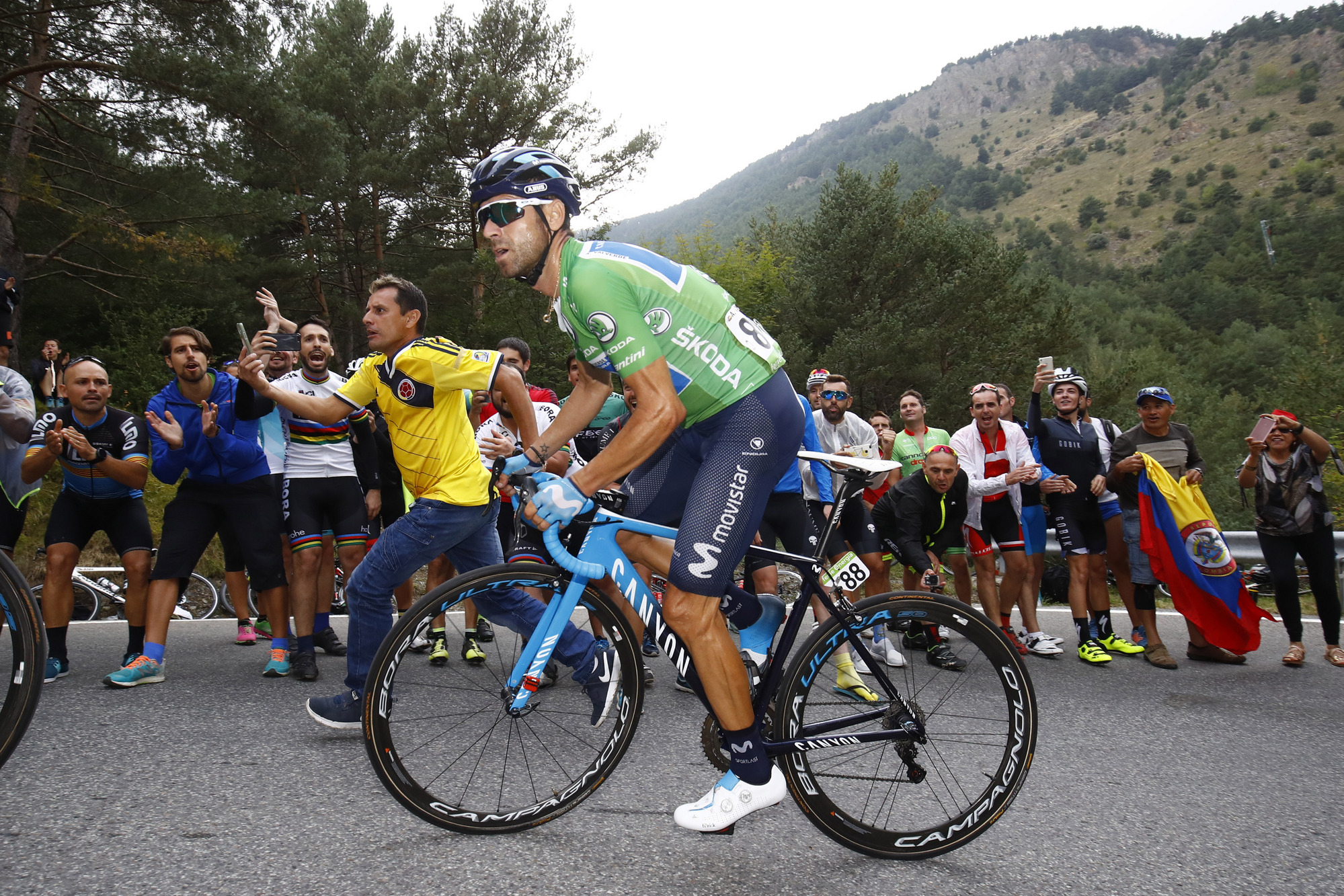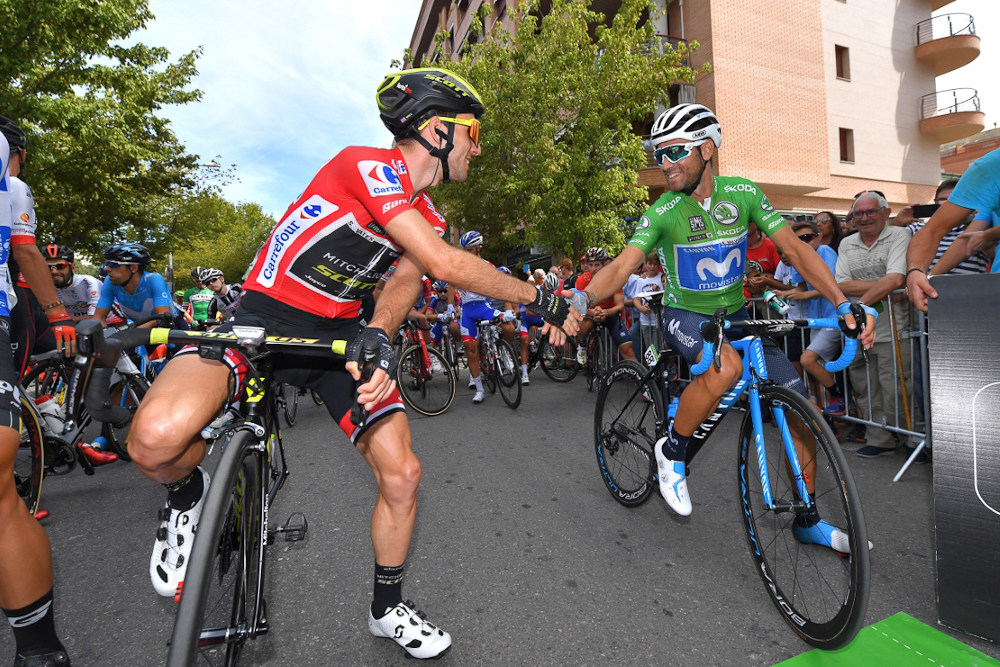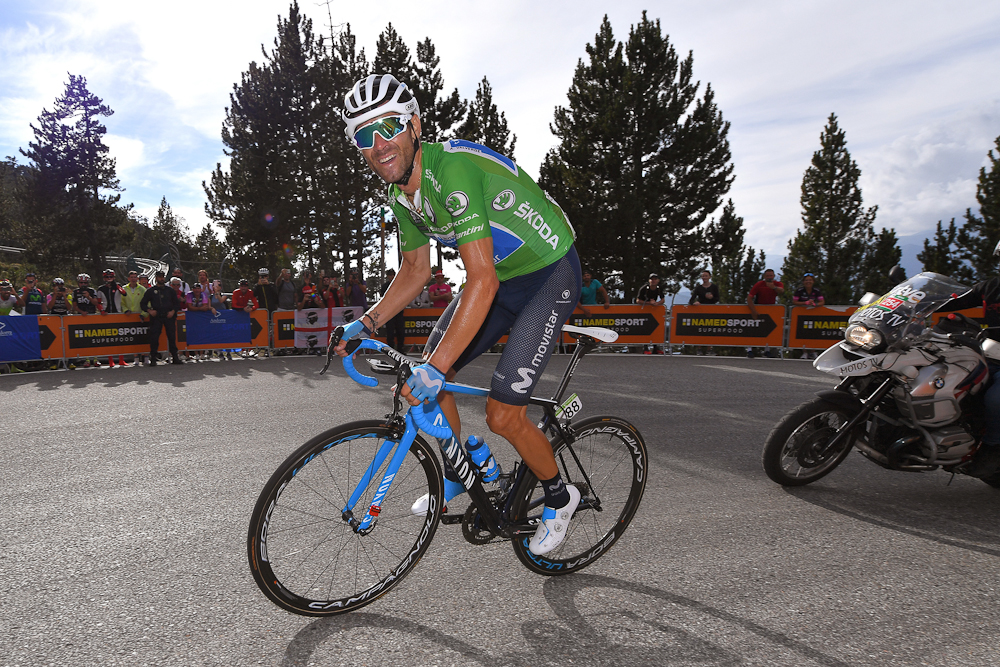Valverde crumbles in final Vuelta a Espana mountain stage
Spaniard proud despite dropping from podium, looks ahead to Worlds




Alejandro Valverde's dream of another podium finish or even another win in the Vuelta a España ended in near-nightmare as the veteran Movistar racer crumbled in the final mountain stage and sank from second to fifth overall.
The moment the last climb of the 2018 Vuelta a España began to steepen, Valverde began to struggle. He had, he later revealed, been in trouble since the second ascent of Beixalis the fourth of the race's six mountain climbs, but even the day before, on the Col de la Rabassa, he had not looked at his best.
Movistar teammate Nairo Quintana dropped back from the breakaway group with Simon Yates (Mitchelton-Scott), Enric Mas (Quick-Step Floors) and Miguel Angel Lopez (Astana Pro Team) to support him, but Valverde's situation was steadily worsening.
All three riders now set to occupy podium positions in Madrid were ahead of him on the stage and he was rapidly shipping time, and on top of that Steven Kruiswijk (LottoNL-Jumbo), battling to save his third place - unsuccessfully - charged away, pushing Valverde down another spot.
There was massive applause as Valverde crossed the line, guided in by Quintana. And the Spaniard, barely able even to keep pace with the Colombian at some times, recognised afterwards that he had been on the backfoot most of the day.
"You have to be happy when you give it everything you've got," Valverde said as he wheeled round at the steep finishing line and then ground to a halt amid a sea of Spanish TV cameras.
"You have to accept the defeats, when you win, everything is great, but when you lose, you have to recognise that your rivals are better and keep looking ahead."
Get The Leadout Newsletter
The latest race content, interviews, features, reviews and expert buying guides, direct to your inbox!
Valverde said afterwards that he had begun to feel rough on the second ascent of the Beixalis and "I was suffering a lot. I wasn't feeling at all good, and I could barely turn my legs. After that, all I could do was suffer and then suffer some more.
"It's painful to come off the podium, but when you give it everything, you can't ask for more."
He singled out Quintana, under fire from some sections of the Spanish media throughout the Vuelta, for praise, saying, "The team has been great throughout the whole Vuelta and Nairo has shown today he knows how to be a great teammate and be by my side."
Valverde pointed out that despite the last minute defeat, he has been up there throughout the Vuelta and he pointed out that Movistar, despite their below-expectations showing in the overall, still have come away with two stage wins, Valverde's points jersey victory and the teams prize. He also was courteous enough to congratulate the rider 15 years his junior, who replaced him on the podium, Enric Mas.
He now looks ahead to the Worlds, where he will be Spain's leader and try, for once and for all, to take a rainbow jersey that has eluded him since 2003.
"We have to see what we get there," he concluded, "These last few days have not been the best but I think there's time to turn things around and head to Innsbruck in good shape."
For Movistar, meanwhile, the Vuelta a España has been a complex one. Although Valverde has shone - and this was a race in which he was not touted as their GC leader in Malaga - Quintana has turned in a disappointing performance on the overall and for the first time since 2012, the Colombian has failed to make a single GT podium in one year.
Whilst their third leader, Mikel Landa, injured, was unable to form part of the team, Movistar nonetheless began the race as strong favourites. Exactly why the home squad failed to live up to those expectations, particularly after such a difficult Tour de France, too, is a question that will reverberate throughout this winter in Spanish cycling.
Alasdair Fotheringham has been reporting on cycling since 1991. He has covered every Tour de France since 1992 bar one, as well as numerous other bike races of all shapes and sizes, ranging from the Olympic Games in 2008 to the now sadly defunct Subida a Urkiola hill climb in Spain. As well as working for Cyclingnews, he has also written for The Independent, The Guardian, ProCycling, The Express and Reuters.
